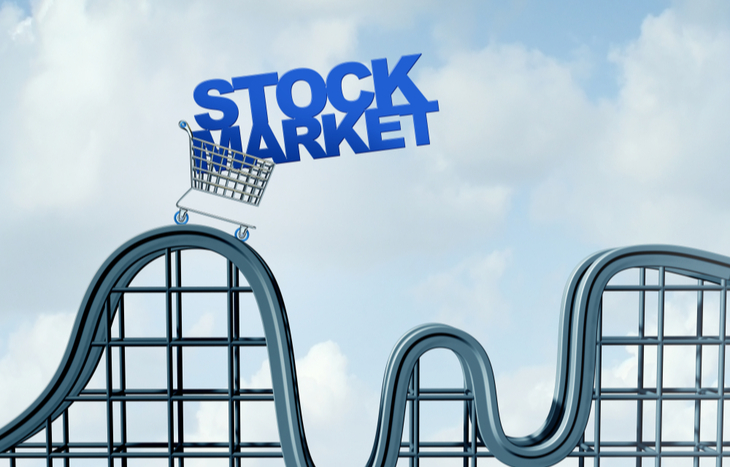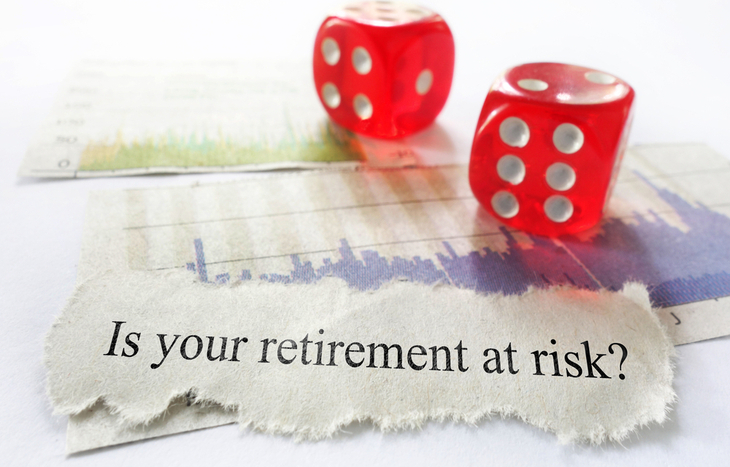Welcome to the New “Post-Responsibility” Society

According to the Federal Reserve’s 2020 Survey of Household Economics and Decision Making, 26% of non-retired Americans have no retirement savings.
None. Zero. Zilch.
In fact, 35% of Americans said they would have difficulty covering an unexpected $400 expense.
This has brought on the predictable complaints about economic inequality, our “rigged” system and how capitalism is broken.
That’s Bravo Sierra. And you know it.
Let’s consider a few basic facts… always a good starting point.
In 2019, U.S. median household income reached a record $68,703.
Unemployment is declining. Wages are growing.
And, as the Federal Reserve recently reported, U.S. household net worth is also at a new all-time record.
If capitalism is broken, please do me a favor. Don’t fix it.
“But not everyone is sharing equally in the prosperity,” critics say. What they don’t say is that people in free societies everywhere have unequal outcomes.
You want great economic equality? Visit North Korea. Or Cuba. Or Venezuela. Everyone is equal in their misery.
Capitalism isn’t broken. What’s broken are public education and today’s context-free journalism.
For starters, academia and the mainstream media apparently don’t realize that capitalism is an economic system, not a political one.
In a free market system, highly skilled people who work the most get paid the most. Less skilled people get paid less. And people who can’t or won’t work don’t get paid at all.
Then our political system – through taxes and transfer payments – leavens that inequality.
Of course, millions of folks, whether they have high incomes, low incomes or something in between, don’t live within their means.
They have comfortable salaries. (And homes, cars, trips, meals out… and closets, attics and garages full of stuff.) What they don’t have are savings. Not because the economy is broken but because they don’t live within their means and set something (anything) aside.
Or perhaps they saved but – because they’re risk-averse or uninformed – never invested those savings to earn higher returns.
True, some lucky ones are born with higher IQs and into more affluent households with better or more devoted parents. That’s life. And, as your mother told you when you first complained about it at age 4, it isn’t fair.
No politician, no law, no social program and no magic wand can change that.
Good or bad, we all must play the hand we’re dealt. You do that by 1) making the very best choices you can and 2) taking responsibility for your actions.
If you don’t do those things, trust me – you will not have a happy, successful life.
Yet some today – especially politicians running for office – don’t want you to feel responsible for the life you’ve created with your choices.
Didn’t stay in school? Not your fault.
Don’t have any marketable skills? Not your fault.
Can’t keep a job? Not your fault.
Can’t stay out of trouble with the law? Not your fault.
Had kids you can’t support? Not your fault.
Never saved a dime… and certainly not $400? Not your fault either.
Welcome to the new “post-responsibility” society, where individual efforts don’t matter and it’s wrong to judge others by their character and actions.
Sorry. I don’t buy it.
I have a middle-class background myself. I grew up in the South in a home without air conditioning. (I also went to crummy public schools that weren’t air-conditioned.) I had no great genetic gifts, no connections, no inheritance.
In college, I could not afford to call home except on Sundays after 7 p.m. (Remember those days?) I didn’t take (because I couldn’t afford) a commercial flight until I was in my mid-20s.
As a young man, I worked a succession of tedious, brain-dead, low-paying jobs, including waiting tables in a tavern, maintenance on a truck terminal and the night shift in an auto parts warehouse.
I lived in modest accommodations, drove a beater car (the stereo was worth more than the vehicle), never ate out, owned no valuable possessions, spent little on entertainment (hiking, swimming, reading and tennis are free) and virtually never traveled.
(When I did, it wasn’t far. I had no passport and certainly no money to spend abroad.)
Yet two things stick out from this period.
One, never in my wildest dreams did I imagine the system was rigged, capitalism was broken, or some friend, family member or government bureaucrat would bail me out…
And two, those were some of the very best times of my life. After all, none of my friends had money either, so we made our own fun. (A good meal and lively conversation don’t cost much.)
I never felt poor. Why? Partly because I saved a little bit of every paycheck. (Frankly, I was afraid of what might happen if I didn’t.)
Being broke is a temporary condition. Being poor is a state of mind.
I fully support most social welfare programs, incidentally.
Some adults are constitutionally incapable of making a good decision, but there are often kids to consider.
Others are struggling, and it really isn’t their fault. They have severe physical or mental disabilities, emotional problems, terrible luck, or truly lousy circumstances.
But could this possibly describe 35% of Americans? Of course not.
We all make regrettable decisions. But the best of us face up to them. We don’t search for some person, circumstance or aspect of society to blame.
The people who encourage you to do that really aren’t your friends. “It’s not your fault” is not empowering. It’s disempowering.
After all, if you didn’t help create your circumstances, how can you change them?
It’s when we take what Navy SEALs Jocko Willink and Leif Babin call “extreme ownership” that we can solve our most pressing problems, financial or otherwise.
If you are an able-bodied adult who cannot get your hands on $400, you haven’t maximized your marketable skills, or worked long and hard enough, or lived within your means, or regularly saved and invested a portion of your income.
Or all of the above.
Fortunately, you have the power to change that.
There will always be some who expect to thrive and prosper in a “post-responsibility” society. But they are headed for inevitable disappointment.
Why? Because we do not live in a “post-reality” world.
Good investing,
Alex
Click here to watch Alex’s latest video update.








